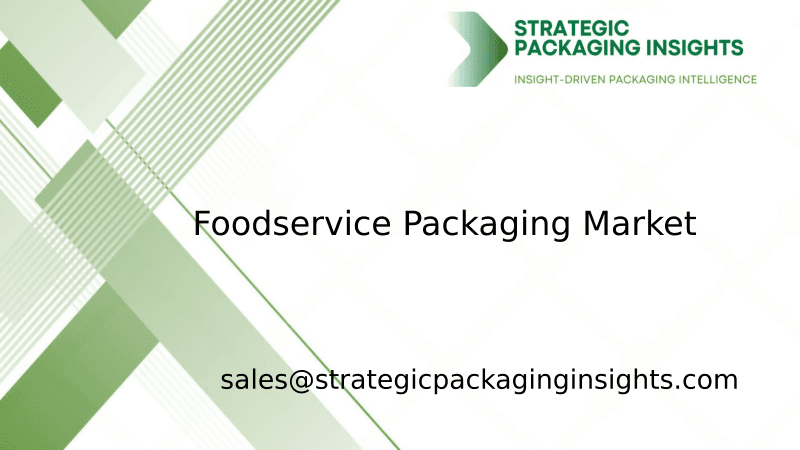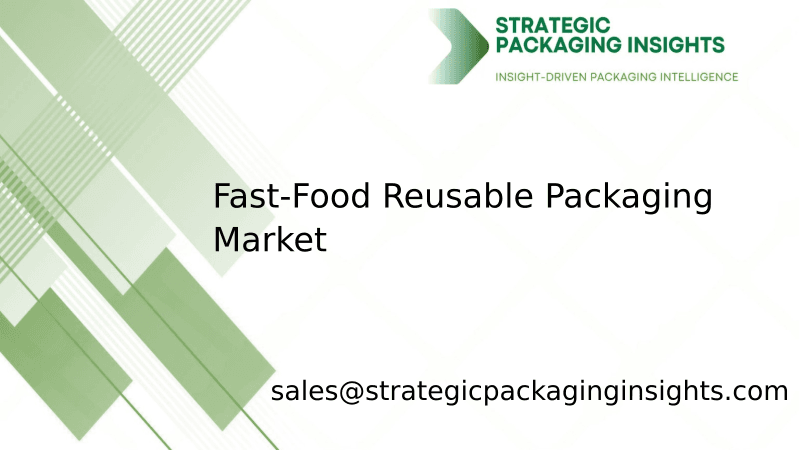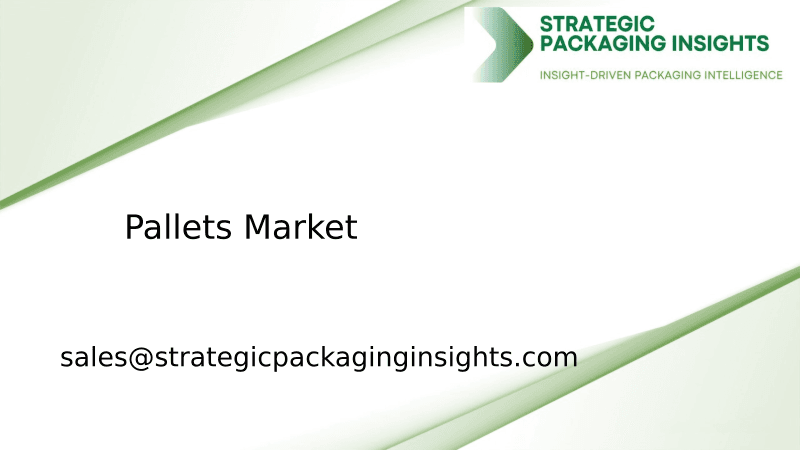- Home
- Packaging Products
- Semi-Automatic Laminating Machine Market Size, Future Growth and Forecast 2033
Semi-Automatic Laminating Machine Market Size, Future Growth and Forecast 2033
Semi-Automatic Laminating Machine Market Segments - by Type (Thermal, Cold), Application (Commercial, Industrial), End-User (Printing Industry, Packaging Industry, Others), and Region (Asia Pacific, North America, Latin America, Europe, and Middle East & Africa) - Market Dynamics, Growth Opportunities, Strategic Drivers, and PESTLE Outlook (2025–2033)
Semi-Automatic Laminating Machine Market Outlook
The semi-automatic laminating machine market was valued at $1.2 billion in 2024 and is projected to reach $2.5 billion by 2033, growing at a CAGR of 8.5% during the forecast period 2025–2033. This growth is driven by the increasing demand for efficient and cost-effective laminating solutions across various industries, including packaging and printing. The market is witnessing a surge in demand due to the rising need for protective and aesthetic enhancements in product packaging. Additionally, technological advancements in laminating machines, such as improved automation features and enhanced precision, are further propelling market growth.
However, the market faces certain restraints, including high initial investment costs and the availability of alternative laminating technologies. Regulatory limitations related to environmental concerns and the use of laminating materials also pose challenges to market expansion. Despite these challenges, the market holds significant growth potential, driven by the increasing adoption of semi-automatic laminating machines in emerging economies and the growing trend of customization in packaging solutions.
Report Scope
| Attributes | Details |
| Report Title | Semi-Automatic Laminating Machine Market Size, Future Growth and Forecast 2033 |
| Base Year | 2024 |
| Historic Data | 2017-2023 |
| Forecast Period | 2025-2033 |
| Number of Pages | 171 |
| Type | Thermal, Cold |
| Application | Commercial, Industrial |
| End-User | Printing Industry, Packaging Industry, Others |
| Region | Asia Pacific, North America, Latin America, Europe, Middle East & Africa |
| Customization Available | Yes* |
Opportunities & Threats
The semi-automatic laminating machine market presents numerous opportunities for growth, primarily driven by the expanding packaging industry. As consumer preferences shift towards more visually appealing and durable packaging, the demand for laminating machines that can deliver high-quality finishes is on the rise. This trend is particularly evident in the food and beverage sector, where packaging plays a crucial role in product differentiation and brand recognition. Additionally, the increasing focus on sustainability and eco-friendly packaging solutions is creating opportunities for manufacturers to develop laminating machines that are compatible with biodegradable and recyclable materials.
Another significant opportunity lies in the technological advancements in laminating machines. The integration of digital technologies, such as IoT and AI, is enabling manufacturers to offer more efficient and user-friendly machines. These advancements are not only enhancing the operational efficiency of laminating machines but also reducing the overall production costs, thereby making them more accessible to small and medium-sized enterprises. Furthermore, the growing trend of automation in the manufacturing sector is expected to drive the demand for semi-automatic laminating machines, as they offer a perfect balance between manual operation and full automation.
Despite the promising opportunities, the market faces certain threats that could hinder its growth. One of the primary challenges is the high initial investment required for purchasing and installing semi-automatic laminating machines. This can be a significant barrier for small businesses and startups, limiting their ability to adopt these machines. Additionally, the availability of alternative laminating technologies, such as fully automatic and manual laminating machines, poses a threat to the market. These alternatives offer different levels of automation and cost-effectiveness, which can influence the purchasing decisions of potential buyers.
The semi-automatic laminating machine market is characterized by a competitive landscape with several key players vying for market share. The market is dominated by a few major companies, each holding a significant share due to their extensive product portfolios and strong distribution networks. These companies are continuously investing in research and development to introduce innovative products and maintain their competitive edge. The competitive rivalry in the market is further intensified by the presence of numerous regional and local players who offer cost-effective solutions to cater to the specific needs of their customers.
One of the leading companies in the market is Bobst Group, which holds a substantial market share due to its wide range of laminating machines and strong global presence. The company is known for its innovative solutions and commitment to sustainability, which has helped it maintain a competitive edge in the market. Another major player is Komori Corporation, which has established itself as a key player in the printing and packaging industry. The company's focus on technological advancements and customer-centric solutions has enabled it to capture a significant share of the market.
Other notable companies in the market include Heidelberg Druckmaschinen AG, which is renowned for its high-quality printing and laminating solutions. The company's strong focus on innovation and customer satisfaction has helped it maintain a strong foothold in the market. Similarly, Fujifilm Holdings Corporation is a prominent player in the market, known for its advanced laminating technologies and extensive product portfolio. The company's commitment to sustainability and continuous improvement has enabled it to capture a significant share of the market.
In addition to these major players, several regional and local companies are also contributing to the market's growth. These companies offer cost-effective solutions and cater to the specific needs of their customers, thereby enhancing their market presence. The competitive landscape of the semi-automatic laminating machine market is expected to remain dynamic, with companies focusing on strategic partnerships, mergers, and acquisitions to expand their market share and strengthen their position in the industry.
Key Highlights Semi-Automatic Laminating Machine Market

- Increasing demand for high-quality and durable packaging solutions.
- Technological advancements in laminating machines, including IoT and AI integration.
- Growing trend of automation in the manufacturing sector.
- Rising focus on sustainability and eco-friendly packaging solutions.
- High initial investment costs as a barrier for small businesses.
- Availability of alternative laminating technologies posing a threat to market growth.
- Strong competitive landscape with major players investing in R&D.
- Significant growth potential in emerging economies.
- Customization in packaging solutions driving market demand.
- Increasing adoption of semi-automatic laminating machines in various industries.
Top Countries Insights in Semi-Automatic Laminating Machine
The United States is one of the leading markets for semi-automatic laminating machines, with a market size of approximately $300 million and a CAGR of 7%. The country's strong focus on technological advancements and innovation in the packaging industry is driving the demand for laminating machines. Additionally, the presence of major players and a well-established distribution network further contribute to the market's growth.
China is another significant market, with a market size of around $250 million and a CAGR of 10%. The country's booming manufacturing sector and increasing demand for high-quality packaging solutions are the primary growth drivers. Moreover, the government's initiatives to promote Sustainable Packaging practices are expected to boost the demand for eco-friendly laminating machines.
Germany, with a market size of $200 million and a CAGR of 8%, is a key player in the European market. The country's strong focus on innovation and sustainability in the packaging industry is driving the demand for advanced laminating machines. Additionally, the presence of major players and a robust distribution network further contribute to the market's growth.
India, with a market size of $150 million and a CAGR of 12%, is emerging as a lucrative market for semi-automatic laminating machines. The country's rapidly growing packaging industry and increasing demand for customized packaging solutions are the primary growth drivers. Furthermore, the government's initiatives to promote the manufacturing sector are expected to boost the demand for laminating machines.
Japan, with a market size of $100 million and a CAGR of 6%, is another significant market in the Asia Pacific region. The country's strong focus on technological advancements and innovation in the packaging industry is driving the demand for laminating machines. Additionally, the presence of major players and a well-established distribution network further contribute to the market's growth.
Value Chain Profitability Analysis
The value chain profitability analysis for the semi-automatic laminating machine market reveals a complex ecosystem involving various stakeholders, including service providers, consultancies, technology platforms, and freelancers. Each stakeholder plays a crucial role in the overall value chain, contributing to the market's profitability and revenue distribution. The analysis shows that technology platforms and service providers capture a significant share of the market value, primarily due to their ability to offer innovative solutions and enhance operational efficiency.
Service providers, including manufacturers and distributors, play a vital role in the value chain by offering a wide range of laminating machines and related services. These stakeholders capture a substantial share of the market value, with profit margins ranging from 15% to 25%. Their ability to offer customized solutions and cater to the specific needs of their customers further enhances their profitability.
Consultancies and technology platforms also play a crucial role in the value chain, offering valuable insights and innovative solutions to enhance the operational efficiency of laminating machines. These stakeholders capture a significant share of the market value, with profit margins ranging from 10% to 20%. Their ability to offer cost-effective solutions and enhance the overall value proposition of laminating machines further contributes to their profitability.
Freelancers and independent consultants, although capturing a smaller share of the market value, play a crucial role in the value chain by offering specialized services and expertise. These stakeholders capture a share of the market value, with profit margins ranging from 5% to 10%. Their ability to offer niche solutions and cater to the specific needs of their customers further enhances their profitability.
Evolving Market Dynamics (2018–2024) and Strategic Foresight (2025–2033)
The semi-automatic laminating machine market has witnessed significant shifts in market dynamics between the periods 2018–2024 and 2025–2033. During the historical period, the market experienced steady growth, driven by the increasing demand for high-quality packaging solutions and technological advancements in laminating machines. The market size evolved from $800 million in 2018 to $1.2 billion in 2024, with a CAGR of 7.5%. The segment distribution shifted towards more advanced and automated solutions, with a growing focus on sustainability and eco-friendly packaging practices.
In the forecasted period, the market is expected to witness accelerated growth, with a projected market size of $2.5 billion by 2033 and a CAGR of 8.5%. The segment distribution is expected to shift further towards more advanced and automated solutions, driven by the increasing adoption of digital technologies and the growing trend of automation in the manufacturing sector. The regional contribution is expected to see significant changes, with emerging economies such as China and India capturing a larger share of the market value.
Technological impact factors, such as the integration of IoT and AI in laminating machines, are expected to play a crucial role in shaping the market dynamics during the forecasted period. These advancements are expected to enhance the operational efficiency of laminating machines and reduce overall production costs, thereby driving market growth. Additionally, client demand transformations, driven by the increasing focus on customization and sustainability, are expected to further influence the market dynamics and strategic imperatives during the forecasted period.
Semi-Automatic Laminating Machine Market Segments Insights

Type Analysis
The semi-automatic laminating machine market is segmented by type into thermal and cold laminating machines. Thermal laminating machines are widely used due to their ability to provide a durable and high-quality finish. These machines use heat to activate the adhesive, resulting in a strong bond between the laminating film and the substrate. The demand for thermal laminating machines is driven by their widespread application in the packaging and printing industries, where high-quality finishes are essential for product differentiation and brand recognition.
Cold laminating machines, on the other hand, use pressure-sensitive adhesives to bond the laminating film to the substrate. These machines are preferred for applications where heat-sensitive materials are involved, as they do not require heat for the laminating process. The demand for cold laminating machines is driven by their ability to handle a wide range of materials and their suitability for applications where heat may cause damage to the substrate. The growing focus on sustainability and eco-friendly packaging solutions is also driving the demand for cold laminating machines, as they are compatible with biodegradable and recyclable materials.
Application Analysis
The semi-automatic laminating machine market is segmented by application into commercial and industrial applications. In the commercial sector, laminating machines are widely used for applications such as signage, posters, and promotional materials. The demand for laminating machines in this sector is driven by the need for high-quality and durable finishes that enhance the visual appeal of printed materials. The growing trend of customization in promotional materials is also driving the demand for laminating machines in the commercial sector.
In the industrial sector, laminating machines are used for applications such as packaging, labeling, and product protection. The demand for laminating machines in this sector is driven by the need for durable and protective finishes that enhance the longevity and aesthetic appeal of products. The growing focus on sustainability and eco-friendly packaging solutions is also driving the demand for laminating machines in the industrial sector, as they enable manufacturers to offer packaging solutions that are both visually appealing and environmentally friendly.
End-User Analysis
The semi-automatic laminating machine market is segmented by end-user into the printing industry, packaging industry, and others. The printing industry is one of the largest end-users of laminating machines, driven by the need for high-quality and durable finishes that enhance the visual appeal of printed materials. The demand for laminating machines in this industry is also driven by the growing trend of customization and personalization in printed materials.
The packaging industry is another significant end-user of laminating machines, driven by the need for durable and protective finishes that enhance the longevity and aesthetic appeal of products. The growing focus on sustainability and eco-friendly packaging solutions is also driving the demand for laminating machines in this industry, as they enable manufacturers to offer packaging solutions that are both visually appealing and environmentally friendly. Other end-users of laminating machines include sectors such as education, healthcare, and retail, where laminating machines are used for applications such as document protection and product labeling.
Regional Analysis
The semi-automatic laminating machine market is segmented by region into Asia Pacific, North America, Latin America, Europe, and the Middle East & Africa. The Asia Pacific region is expected to witness significant growth during the forecast period, driven by the booming manufacturing sector and increasing demand for high-quality packaging solutions in countries such as China and India. The region's strong focus on technological advancements and innovation in the packaging industry is also driving the demand for laminating machines.
North America and Europe are also significant markets for semi-automatic laminating machines, driven by the strong focus on sustainability and eco-friendly packaging solutions. The presence of major players and a well-established distribution network further contribute to the market's growth in these regions. The Middle East & Africa and Latin America are expected to witness moderate growth during the forecast period, driven by the increasing adoption of laminating machines in various industries and the growing focus on customization and sustainability in packaging solutions.
Semi-Automatic Laminating Machine Market Segments
The Semi-Automatic Laminating Machine market has been segmented on the basis of
Type
- Thermal
- Cold
Application
- Commercial
- Industrial
End-User
- Printing Industry
- Packaging Industry
- Others
Region
- Asia Pacific
- North America
- Latin America
- Europe
- Middle East & Africa
Primary Interview Insights
What are the key drivers for the semi-automatic laminating machine market?
What challenges does the market face?
How is the market expected to evolve in the coming years?
Which regions are expected to witness significant growth?
What role do technological advancements play in the market?
Latest Reports

The fiber drums market was valued at $1.2 billion in 2024 and is projected to reach $2.1 billion by 2033, growing at a CAGR of 6.5% during the forecast period 2025–2033.

The cosmetics and perfumery glass bottles market was valued at $1.5 billion in 2024 and is projected to reach $2.3 billion by 2033, growing at a CAGR of 4.8% during the forecast period 2025–2033.

The medical devices packaging market was valued at $25 billion in 2024 and is projected to reach $40 billion by 2033, growing at a CAGR of 5.5% during the forecast period 2025–2033.

The primary packaging labels market was valued at $35 billion in 2024 and is projected to reach $55 billion by 2033, growing at a CAGR of 5.2% during the forecast period 2025–2033.

The corrugated board packaging market was valued at $250 billion in 2024 and is projected to reach $380 billion by 2033, growing at a CAGR of 4.5% during the forecast period 2025–2033.

The Water Soluble Packaging Films market was valued at $2.8 billion in 2024 and is projected to reach $5.6 billion by 2033, growing at a CAGR of 8.1% during the forecast period 2025–2033.

The Aluminium Foil Packaging market was valued at $25 billion in 2024 and is projected to reach $40 billion by 2033, growing at a CAGR of 5.5% during the forecast period 2025–2033.

The self-heating food packaging market was valued at $4.5 billion in 2024 and is projected to reach $7.8 billion by 2033, growing at a CAGR of 6.2% during the forecast period 2025–2033.

The Smart Container market was valued at $2.5 billion in 2024 and is projected to reach $8.7 billion by 2033, growing at a CAGR of 14.5% during the forecast period 2025–2033.

The Automatic Labeling Machine market was valued at $2.5 billion in 2024 and is projected to reach $4.8 billion by 2033, growing at a CAGR of 7.2% during the forecast period 2025–2033.

The Hot Melt Glue Labeler market was valued at $1.2 billion in 2024 and is projected to reach $2.3 billion by 2033, growing at a CAGR of 6.5% during the forecast period 2025–2033.

The Ethical Label market was valued at $1.5 billion in 2024 and is projected to reach $3.2 billion by 2033, growing at a CAGR of 8.5% during the forecast period 2025–2033.

The Packaging Tensioner market was valued at $1.2 billion in 2024 and is projected to reach $2.3 billion by 2033, growing at a CAGR of 6.5% during the forecast period 2025–2033.

The foodservice packaging market was valued at $120 billion in 2024 and is projected to reach $180 billion by 2033, growing at a CAGR of 4.5% during the forecast period 2025–2033.

The nano-enabled packaging market was valued at $15.2 billion in 2024 and is projected to reach $35.6 billion by 2033, growing at a CAGR of 9.5% during the forecast period 2025–2033.

The Cold Seal Packaging market was valued at $1.5 billion in 2024 and is projected to reach $2.3 billion by 2033, growing at a CAGR of 4.8% during the forecast period 2025–2033.

The Transparent Barrier Packaging Films market was valued at $12.5 billion in 2024 and is projected to reach $20.3 billion by 2033, growing at a CAGR of 5.8% during the forecast period 2025–2033.

The Flatback Tape market was valued at $2.5 billion in 2024 and is projected to reach $4.1 billion by 2033, growing at a CAGR of 5.8% during the forecast period 2025–2033.

The packer bottle market was valued at $3.5 billion in 2024 and is projected to reach $5.8 billion by 2033, growing at a CAGR of 5.2% during the forecast period 2025–2033.

The Canada Nano-Enabled Packaging Food Beverages market was valued at $1.2 billion in 2024 and is projected to reach $3.5 billion by 2033, growing at a CAGR of 12.5% during the forecast period 2025–2033.

The India Aluminum Beverage Can market was valued at $1.2 billion in 2024 and is projected to reach $2.5 billion by 2033, growing at a CAGR of 8.5% during the forecast period 2025–2033.

The fast-food reusable packaging market was valued at $1.2 billion in 2024 and is projected to reach $3.5 billion by 2033, growing at a CAGR of 12.5% during the forecast period 2025–2033.

The pallets market was valued at $59.91 billion in 2024 and is projected to reach $88.69 billion by 2033, growing at a CAGR of 4.5% during the forecast period 2025–2033.

The lamination adhesives market was valued at $2.5 billion in 2024 and is projected to reach $4.1 billion by 2033, growing at a CAGR of 5.8% during the forecast period 2025–2033.

The garment packing machine market was valued at $1.2 billion in 2024 and is projected to reach $2.5 billion by 2033, growing at a CAGR of 8.5% during the forecast period 2025–2033.

The fiber drums market was valued at $1.2 billion in 2024 and is projected to reach $2.1 billion by 2033, growing at a CAGR of 6.5% during the forecast period 2025–2033.

The cosmetics and perfumery glass bottles market was valued at $1.5 billion in 2024 and is projected to reach $2.3 billion by 2033, growing at a CAGR of 4.8% during the forecast period 2025–2033.

The medical devices packaging market was valued at $25 billion in 2024 and is projected to reach $40 billion by 2033, growing at a CAGR of 5.5% during the forecast period 2025–2033.

The primary packaging labels market was valued at $35 billion in 2024 and is projected to reach $55 billion by 2033, growing at a CAGR of 5.2% during the forecast period 2025–2033.

The corrugated board packaging market was valued at $250 billion in 2024 and is projected to reach $380 billion by 2033, growing at a CAGR of 4.5% during the forecast period 2025–2033.

The Water Soluble Packaging Films market was valued at $2.8 billion in 2024 and is projected to reach $5.6 billion by 2033, growing at a CAGR of 8.1% during the forecast period 2025–2033.

The Aluminium Foil Packaging market was valued at $25 billion in 2024 and is projected to reach $40 billion by 2033, growing at a CAGR of 5.5% during the forecast period 2025–2033.

The self-heating food packaging market was valued at $4.5 billion in 2024 and is projected to reach $7.8 billion by 2033, growing at a CAGR of 6.2% during the forecast period 2025–2033.

The Smart Container market was valued at $2.5 billion in 2024 and is projected to reach $8.7 billion by 2033, growing at a CAGR of 14.5% during the forecast period 2025–2033.

The Automatic Labeling Machine market was valued at $2.5 billion in 2024 and is projected to reach $4.8 billion by 2033, growing at a CAGR of 7.2% during the forecast period 2025–2033.

The Hot Melt Glue Labeler market was valued at $1.2 billion in 2024 and is projected to reach $2.3 billion by 2033, growing at a CAGR of 6.5% during the forecast period 2025–2033.

The Ethical Label market was valued at $1.5 billion in 2024 and is projected to reach $3.2 billion by 2033, growing at a CAGR of 8.5% during the forecast period 2025–2033.

The Packaging Tensioner market was valued at $1.2 billion in 2024 and is projected to reach $2.3 billion by 2033, growing at a CAGR of 6.5% during the forecast period 2025–2033.

The foodservice packaging market was valued at $120 billion in 2024 and is projected to reach $180 billion by 2033, growing at a CAGR of 4.5% during the forecast period 2025–2033.

The nano-enabled packaging market was valued at $15.2 billion in 2024 and is projected to reach $35.6 billion by 2033, growing at a CAGR of 9.5% during the forecast period 2025–2033.

The Cold Seal Packaging market was valued at $1.5 billion in 2024 and is projected to reach $2.3 billion by 2033, growing at a CAGR of 4.8% during the forecast period 2025–2033.

The Transparent Barrier Packaging Films market was valued at $12.5 billion in 2024 and is projected to reach $20.3 billion by 2033, growing at a CAGR of 5.8% during the forecast period 2025–2033.

The Flatback Tape market was valued at $2.5 billion in 2024 and is projected to reach $4.1 billion by 2033, growing at a CAGR of 5.8% during the forecast period 2025–2033.

The packer bottle market was valued at $3.5 billion in 2024 and is projected to reach $5.8 billion by 2033, growing at a CAGR of 5.2% during the forecast period 2025–2033.

The Canada Nano-Enabled Packaging Food Beverages market was valued at $1.2 billion in 2024 and is projected to reach $3.5 billion by 2033, growing at a CAGR of 12.5% during the forecast period 2025–2033.

The India Aluminum Beverage Can market was valued at $1.2 billion in 2024 and is projected to reach $2.5 billion by 2033, growing at a CAGR of 8.5% during the forecast period 2025–2033.

The fast-food reusable packaging market was valued at $1.2 billion in 2024 and is projected to reach $3.5 billion by 2033, growing at a CAGR of 12.5% during the forecast period 2025–2033.

The pallets market was valued at $59.91 billion in 2024 and is projected to reach $88.69 billion by 2033, growing at a CAGR of 4.5% during the forecast period 2025–2033.

The lamination adhesives market was valued at $2.5 billion in 2024 and is projected to reach $4.1 billion by 2033, growing at a CAGR of 5.8% during the forecast period 2025–2033.

The garment packing machine market was valued at $1.2 billion in 2024 and is projected to reach $2.5 billion by 2033, growing at a CAGR of 8.5% during the forecast period 2025–2033.
